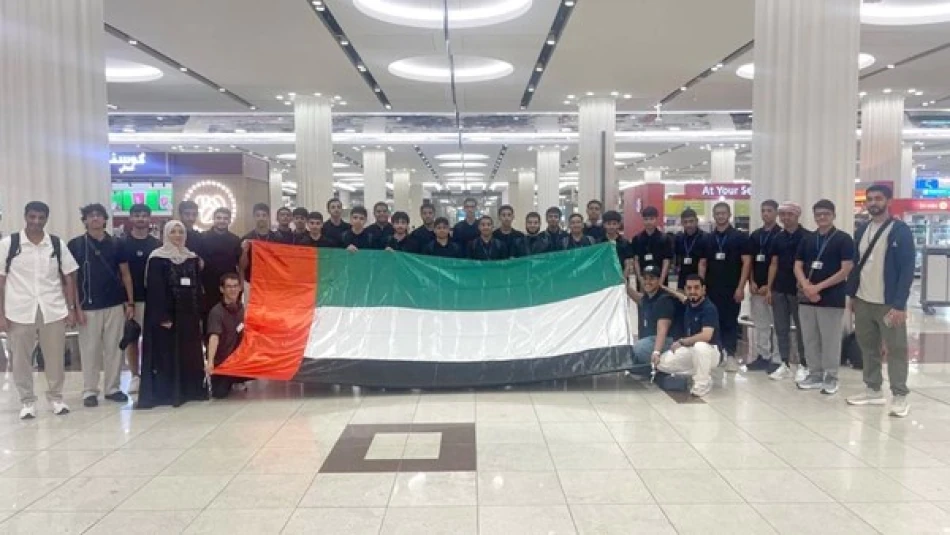
Discover Exciting Educational Adventures Abroad: Ministry Announces 2025 'Summer Abroad' Program
UAE Sends 270 Top Students to Elite Global Universities in Strategic Talent Development Push
The UAE Ministry of Education has launched its ambitious "Summer Abroad" program for 2025, dispatching 270 exceptional high school students to leading universities and research institutions across six countries. This strategic initiative, targeting 10th and 11th graders from public schools, represents a calculated investment in developing the next generation of Emirati leaders in artificial intelligence, entrepreneurship, and innovation.
Elite Selection for Global Exposure
The selected students represent the cream of UAE's academic talent, chosen from national programs and specialized competitions. During July and August, these young scholars will immerse themselves in world-class training programs across Singapore, China, Japan, South Korea, Russia, and Malaysia—countries specifically chosen for their leadership in education and technological innovation.
Education Minister Sarah bint Yousuf Al Amiri emphasized that the program provides students with "an opportunity to acquire new skills through training at elite global universities and scientific institutions, contributing to refining their academic abilities and developing their personal skills."
Strategic Geographic Focus Reveals UAE's Priorities
The destination choices signal the UAE's recognition of Asia's rising dominance in technology and education. Singapore's world-class education system, China's AI leadership, Japan's robotics expertise, South Korea's digital innovation, and Malaysia's emerging tech sector offer students exposure to diverse approaches to technological advancement.
This geographic focus mirrors similar initiatives by other forward-thinking nations. Singapore's own overseas scholarship programs and China's Belt and Road educational exchanges demonstrate how countries are using educational diplomacy to build future partnerships and capabilities.
Beyond Tourism: Building Tomorrow's Innovation Leaders
Unlike typical student exchange programs, this initiative specifically targets artificial intelligence, leadership, and entrepreneurship—sectors critical to the UAE's Vision 2071 goal of becoming the world's best country by its centennial. The program's focus on these emerging fields positions participants to drive the UAE's transition from an oil-dependent economy to a knowledge-based powerhouse.
Inclusive Excellence
Notably, the program includes students of determination (people with disabilities) in the Japan and South Korea delegations, reflecting the UAE's commitment to inclusive development. This approach aligns with global trends recognizing that diverse perspectives drive innovation.
Investment in Human Capital Yields Long-term Returns
The program deploys 29 educational supervisors to support the students, indicating substantial financial commitment. While the exact budget remains undisclosed, similar programs in other Gulf states typically cost millions of dollars—a significant but strategic investment in human capital development.
For the UAE, this represents more than educational enrichment. These students will return with international networks, cross-cultural competencies, and exposure to cutting-edge research methodologies. Many will likely pursue higher education abroad, eventually returning as the UAE's next generation of entrepreneurs, researchers, and policy makers.
Competitive Advantage in the Knowledge Economy
As regional competitors like Saudi Arabia and Qatar launch similar initiatives, the UAE's early and sustained investment in youth development provides competitive advantage. The program's emphasis on practical skills over theoretical knowledge suggests these students will return ready to contribute immediately to the UAE's innovation ecosystem.
The timing is strategic: as artificial intelligence reshapes global economies, countries that invest early in AI-literate human capital will dominate future markets. The UAE's approach—combining international exposure with domestic talent development—positions it to capitalize on the coming technological transformation while maintaining its cultural identity and national priorities.
Most Viewed News

 Layla Al Mansoori
Layla Al Mansoori






